Meet the Invited Program
Introducing the invited speakers and presenters of the SRCD 2025 Biennial Meeting, themed Promoting Integrative Developmental Science, taking place from May 1 to May 3, 2025, in Minneapolis, Minnesota.
Invited Keynote Speaker
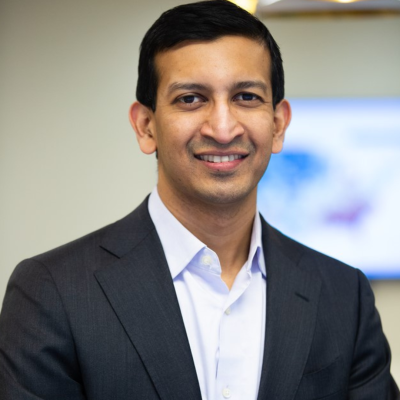
Raj Chetty, Ph.D.
Dr. Raj Chetty is the William A. Ackman Professor of Economics at Harvard University and the Director of Opportunity Insights, which uses big data to study the science of economic opportunity: how we can give children from all backgrounds better chances of succeeding? Dr. Chetty’s work has been widely cited in academia, media outlets, and policy discussions in the United States and beyond.
Dr. Chetty received his Ph.D. from Harvard University in 2003 and is one of the youngest tenured professors in Harvard’s history. He has received numerous awards for his research, including a MacArthur “Genius” Fellowship, the John Bates Clark medal, given to the economist under 40 whose work is judged to have made the most significant contribution to the field, and Harvard’s George Ledlie prize, awarded for research that made the most valuable contribution to science, or in any way for the benefit of mankind.
Professional Website
Invited Program
The following invitees are listed in alphabetical order by their last names.
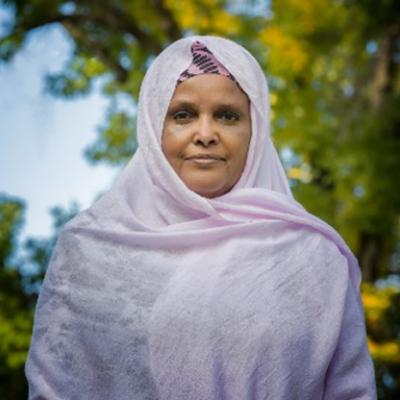
Saida M. Abdi, Ph.D.
Dr. Saida M. Abdi is an assistant professor in the School of Social Work in the College of Education and Human Development at the University of Minnesota. She is a trained clinician and an expert in refugee trauma and resilience. She earned her Ph.D. in Sociology and Social Work from Boston University. Her area of focus is building individual, family, and community resilience and improving mental health access and engagement among trauma- impacted refugee children and families.
Dr. Abdi is a leader in the adaptation and implementation of Trauma Systems Therapy for Refugees (TST-R). Dr. Abdi is the clinical lead for multiple projects in North America and East Africa that support psychological healing for conflict impacted youth. She consults with both national and international entities to promote developmentally appropriate and resilience promoting interventions for children impacted by conflict.

Margarita Alegría, Ph.D.
Dr. Margarita Alegría is the Chief of the Disparities Research Unit at Massachusetts General Hospital and the Mongan Institute, the Harry G. Lehnert, Jr. and Lucille F. Cyr Endowed MGH Research Institute Chair at the Massachusetts General Hospital, and a Professor in the Departments of Medicine and Psychiatry at Harvard Medical School. She has spent her career examining how to reduce health disparities for minoritized populations, immigrants, and linguistic minorities.
Dr. Alegría is currently the PI of three NIH-funded research studies: Building Infrastructure for Community Capacity in Accelerating Integrated Care, Building Community Capacity for Disability Prevention for Minority Elders, and Latino Youths Coping with Discrimination: A Multi-Level Investigation in Micro- and Macro-Time. She is also PI of an RWJF grant assessing opportunities to establish systemic changes to increase racial/ethnic diversity in academic health sciences. She has published over 300 papers, editorials, intervention training manuals, and several book chapters.
Massachusetts General Hospital Page
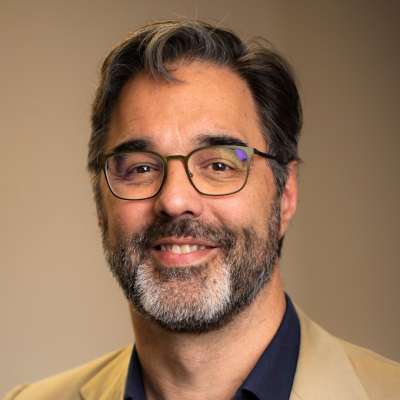
Nicholas Allen, Ph.D.
Dr. Nicholas Allen has more than thirty years of experience in clinical psychology practice, research, and education. His research aims to understand the interactions between multiple risk factors for adolescent onset mental health disorders, and to use these insights to develop innovative approaches to prevention and early intervention. He holds multiple NIH and industry-funded grants for work focusing on the use of mobile and wearable technology to monitor risk for mental health outcomes including suicide, depression, and bipolar disorder.
Dr. Allen’s team has developed software tools which use active and passive sensing methods to provide intensive longitudinal assessment of behavior. The ultimate aim of these technologies is to develop a new generation of “just-in-time” behavioral interventions for mental health problems. Dr. Allen is also the co-founder and CEO of Ksana Health Inc, a startup company whose mission is to use research evidence and modern technology to revolutionize the delivery of mental health care.
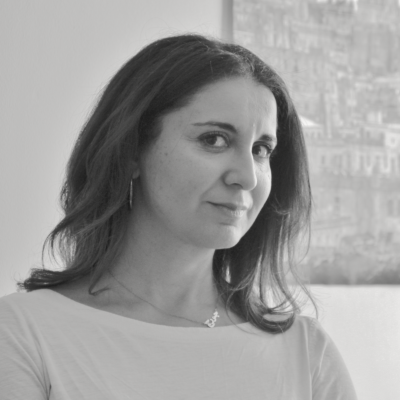
Dima Amso, Ph.D.
Dr. Dima Amso is a Professor in the Department of Psychology at Columbia University. She completed her undergraduate studies at Tufts University, was trained at Cornell University, and received a Ph.D. in psychology from New York University in 2005. She served on the faculty at the Weill Cornell before joining the faculty at Brown University in 2010 and Columbia University in 2020.
Dr. Amso’s research examines the development of attention, executive functions, and memory beginning in infancy. She is particularly interested in how environmental variables shape these trajectories. She has authored over 100 papers on the topic. Dr. Amso’s research has been funded by the National Institute of Mental Health, the National Science Foundation, the National Institute for Child Health and Human Development, and Wellcome Trust. She is a recipient of the James S. McDonnell Scholar Award and is an elected Fellow of the American Psychological Society.

Lauren Bader, Ph.D.
Dr. Lauren Bader is currently a research consultant for UNICEF Innocenti – Global Office of Research and Foresight and SRCD’s Data Tracking Initiative. Previously, she was a research fellow at the University of Michigan and the Institute for Advanced Study in Toulouse. Dr. Bader’s work has focused on cross-cultural parenting and social-emotional development in infancy. She is currently investigating maternal depression during pregnancy and postpartum and infant development in rural Kenya and Ethiopia.
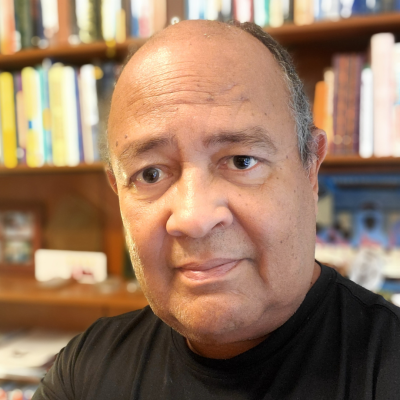
Oscar Barbarin, Ph.D.
Dr. Oscar Barbarin completed a Ph.D. in clinical Psychology from Rutgers University and a post-doctoral fellowship in social psychology at Stanford University. He has held faculty positions at the Universities of Michigan, North Carolina, and Maryland, and at Tulane. He has been a P.I. on studies of children at risk of socio-emotional and academic difficulties. His work has addressed the effects of adversity on poor children and children of color, particularly Black boys and youth.
Dr. Barbarin recently completed a book entitled “Emotional Resilience of Black Boys and Youth” published by Oxford University Press. Within SRCD he has chaired the International Committee and served on the Governing Council. He is the recipient of SRCD’s award for Distinguished Contributions to Understanding International, Cultural and Contextual Diversity in Child Development. He chaired the US National Committee for Psychology at the National Academies and served on the executive board of the International Union of Psychological Sciences.
Faculty Page
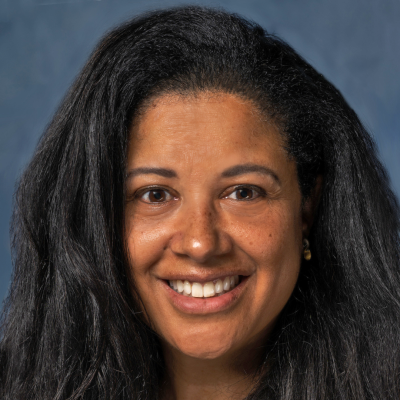
Stefanie Bodison, Ph.D.
Dr. Stefanie Bodison is an Assistant Professor in the Department of Occupational Therapy, College of Public Health and Health Professions, at the University of Florida. Her research program uses multimodal neuroimaging methods to investigate the neural correlates of somatosensory and vestibular processing as a foundation for the development of sensorimotor skills in neurotypically developing children and those with neurodevelopmental disorders.
Dr. Bodison has received research grants from the Department of Defense, the NIH National Institute on Alcohol Abuse and Alcoholism, and the Southern California Clinical Translational Science Institute to study developing sensorimotor networks in children with autism, prenatal alcohol exposure, and sensorineural hearing loss. Dr. Bodison serves as co-chair of the Justice, Equity, Diversity, and Inclusion (JEDI) workgroup on inclusive methods and measures on the NIH-funded ABCD Study and on the JEDI Advisory Council, where she provides consortium-wide support on inclusion and belonging.
Faculty Page | Follow Stefanie Bodison on X

Alaina Brenick, Ph.D.
Dr. Alaina Brenick (she/her), Associate Professor of Human Development and Family Sciences (UConn), is a white, queer, disabled, Jewish, ciswoman scholar-activist. She received a National Institute of Child Health and Human Development pre-doctoral traineeship for her doctoral studies (Ph.D. University of Maryland) and a postdoctoral fellowship at Friedrich Schiller Universität, Germany. Through a social justice lens, she analyzes how diverse social groups experience, reason about, and respond to intergroup relations, group-based victimization, and systemic discrimination. Using a social-ecological framework to analyze micro and macro system influences on these factors, her work is designed to be applied directly to policy, practice, and social action.
Her research provides a fundamental knowledge base for creating multifaceted, contextually, and developmentally appropriate intervention programs designed to promote compassion, positive intergroup relations, and social equity. Dr. Brenick prioritizes professional service that drives anti-bias DEIJ in the field (e.g., co-chair Anti-racism Taskforce, Sociocultural Data Tracking Initiative Advisory Board).
Faculty Page

Jeanne Brooks-Gunn, Ph.D.
Dr. Jeanne Brooks-Gunn is the Virginia and Leonard Marx Professor of Child Development at Teachers College and the College of Physicians and Surgeons of Columbia University. Her research focuses on biological and social transitions through childhood, adolescence and adulthood, as well as the environmental factors, such as parental education, income, mental health and stability, as well as neighborhood conditions that enhance and constrain well being and changes in well-being over time. She also conducts evaluations of national and multi-site interventions for children.
Dr. Brooks-Gunn is a member of the National Academy of Medicine and has received lifetime achievement awards for her policy infused work from SRCD, SRA, APA, APS, NIH, Harvard Graduate School of Education, and AASPS and has an honorary degree from Northwestern University.
Professional Website

Eddie Brummelman, Ph.D.
Dr. Eddie Brummelman is an Associate Professor at the University of Amsterdam and founder of KiDLAB, a lab dedicated to studying the developing self—the nature, origins, and consequences of children’s self-views. He earned his PhD at Utrecht University, did his postdoc at Stanford University, and then joined the University of Amsterdam. His work informs parents, teachers, educators, and other professionals in addressing social problems, such as inequality and narcissism.
He also serves as the chair of The Young Academy (De Jonge Akademie) of the Royal Netherlands Academy of Arts and Sciences (KNAW), a platform that is dedicated to the future of science by promoting the value of science and improving science policy.
Faculty Page | Follow Eddie Brummelman on X
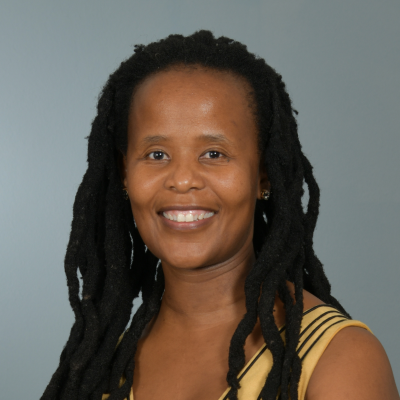
Zethu Cakata, Ph.D.
Dr. Zethu Cakata currently works as a full professor in the Department of Psychology at the University of South Africa. Her scholarship interests are in indigenous African ways of understanding human sciences, particularly Psychology, African Psychology, re-Africanization of curriculum through language. She also explores phenomena such names and naming practices, ethics around studying indigenous phenomena and research methodology. She has published on the need to center African knowledge in higher education curriculum with titles on the spiritual meaning of what is today known as lobola, the cultural embeddedness of African Psychology and the spiritness of African knowledge. In her work she also uses metaphoric language as the reliable site of African epistemologies.
Dr. Cakata previously worked as a researcher and lecturer in institutions such as Statistics South Africa, Department of Psychology at the University of Pretoria and Human Sciences Research Council. She was recently awarded the Teaching & Learning award by Unisa for her scholarly contributions in teaching, research, and community engagement. She has recently published a co-authored book titled “Still to be Named: An exploration of African Epistemologies” using Simphiwe Dana’s selected works.

Bridget Callaghan, Ph.D.
Dr. Bridget Callaghan is an Assistant Professor of Psychology at UCLA who studies how early life experiences influence interactions between mental and physical health across development and into the next generation. She received her bachelor's degree in psychology, her master's in clinical psychology, and her Ph.D. at the University of New South Wales, Australia. She has worked clinically in the field of developmental psychology and completed her postdoctoral training at Columbia University in New York in 2019.
Dr. Callaghan’s research has been generously funded through the National Institutes of Mental Health, National Institutes of Aging, Brain Behavior Research Foundation, and National Health and Medical Research Council of Australia. She is a recipient of the APS Rising Star Award, the Federation for the Association of Brain and Behavioral Sciences Early Career Impact Award, and the Kucharski Young Investigator Award.
Faculty Page | Follow Bridget Callahan on X

Charissa S. L. Cheah, Ph.D.
Dr. Charissa S. L. Cheah is a Professor of Psychology and an Asian Studies Faculty Affiliate at the University of Maryland, Baltimore County. Dr. Cheah is the current President of the Society for Research on Adolescence. She is also a Fellow of the American Psychological Association, the Association for Psychological Science, and the International Society for the Study of Behavioral Development. Within SRCD, Dr. Cheah has previously served as the Chair of the Asian Caucus, co-chair of the International Affairs Committee, member of the Ethnic Racial Issues Committee, and Associate Editor for Child Development.
Dr. Cheah’s research focuses on the social-emotional, mental, and physical health development of children and adolescents, particularly among families of Asian racial-ethnic heritage and from Muslim religious minority backgrounds. She employs mixed-method approaches to explore how individual characteristics, relationships, socialization agents, and contexts influence youth development in diverse cultural contexts.
Professional Website | Follow Charissa Cheah on X
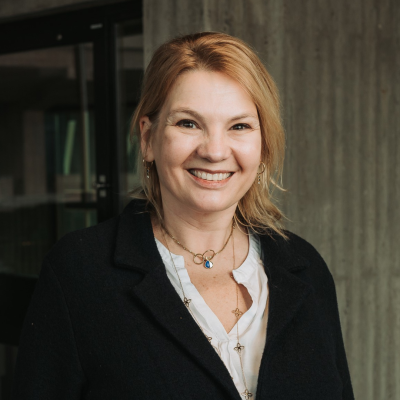
Eveline A. Crone, Ph.D.
Dr. Eveline A. Crone is a full professor in Developmental Neuroscience in Society at Erasmus University Rotterdam (and she leads the SYNC lab - Society, Youth and Neuroscience Connected) and Professor of Neurocognitive Developmental Psychology at Leiden University.
Her Society, Youth and Neuroscience Connected (SYNC) lab examines the psychological and neural processes involved in self-regulation and social development, with a special focus on adolescence. Her research relies strongly on neuroscience and transdisciplinary approaches, involving societal partners and youth in the full research cycle. She currently leads the 10-year Growing Up Together in Society (GUTS) Gravitation program (2023-2033) a large-scale multi-site program on adolescent neural and social development. Prof. Crone is member of the Royal Academy of Sciences in the Netherlands, Fellow of The British Academy and International Member of the US National Academy of Sciences (NAS). She is currently President of the Flux Society for Developmental Cognitive Neuroscience.
Faculty Page

Jorge Cuartas, Ph.D.
Dr. Jorge Cuartas is an Assistant Professor in the Department of Applied Psychology at New York University. He is an applied developmental scholar who studies the promotion of resilience and positive developmental trajectories across the life course, the developmental consequences and prevention of violence against children, the design, implementation, and evaluation of parenting and early childhood programs and policies, and the intersections between climate change and the science of human development.
Dr. Cuartas’ research has been published in The Lancet Child & Adolescent Health, Child Development, Developmental Science, Child Development Perspectives, and Developmental Psychology, among others, and has been recognized by prestigious awards such as the American Psychological Association (APA) Developmental Psychology’s Early Career Outstanding Paper Award. He holds a Ph.D. in Human Development from Harvard University, Ed.M. in Human Development and Psychology from Harvard University, and M.Sc. in Economics from Universidad de los Andes.
Professional Page | Follow Jorge Cuartas on X
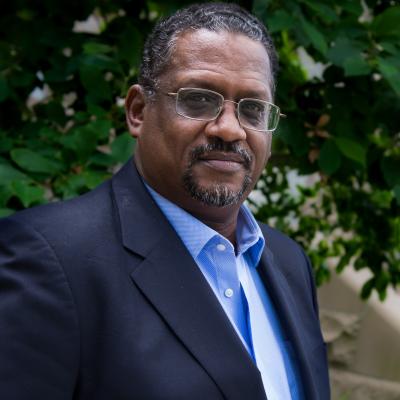
Michael Cunningham, Ph.D.
Dr. Michael Cunningham is a developmental psychologist with a research program that focuses on racial, psychosocial, and socioeconomic processes that affect psychological well‐being, adjustment to chronic stressful events, and academic achievement among African American adolescents and their families. With external funding from federal and private foundations, he uses mixed methods in his research projects that include the study of gender‐specific patterns of resilience and vulnerability in urban African American participants. He has received Tulane University’s highest teaching award and been designated as a Suzanne and Stephen Weiss Presidential Fellow.
Dr. Cunningham completed his Ph.D. at Emory University after completing an undergraduate degree at Morehouse College, and a postdoc at the University of Pennsylvania. His professional service includes serving as Editor-in-chief for Research in Human Development (2018-2024), Senior Editor for the American Educational Research Journal (2018-2022), and service on serval editorial boards (e.g., Journal of Negro Education, Child Development - Associate Editor from 2007-2019).
Faculty Page | Follow Michael Cunningham on X
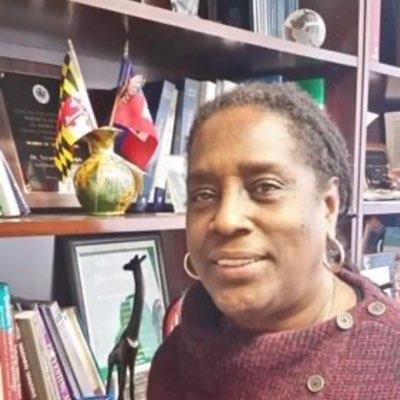
Suzanne Randolph Cunningham, Ph.D.
Dr. Suzanne Randolph Cunningham is MayaTech’s Chief Science Officer, serves as MayaTech’s Director of Continuing Education, and has over 35 years of methodological expertise in survey, experimental, and evaluation research designs applied to the study of social and human services, and public health programs and policies.
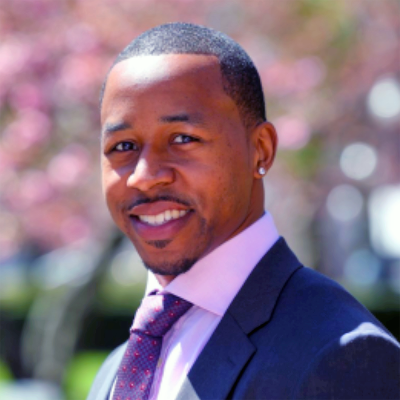
Jarrell E. Daniels
Jarrell E. Daniels is a doctoral student and NSF Graduate Research Fellow in the Psychology and Social Intervention program in Applied Psychology at NYU Steinhardt. His research focuses on (1) understanding the ecology of adolescent contact and involvement with the criminal legal system and (2) addressing youth violence through evidence-based interventions and community-government collaboration.
Daniels examines the complex interplay between identity, social exclusion and legal system contact during adolescent development. By exploring individual, community and societal factors that contribute to youth incarceration and violence, he aims to develop and implement interventions that support vulnerable adolescents in their transitions to adulthood. His current research projects include evaluating the effectiveness of the Project Restore intervention program, studying positive pathways out of street membership and the impact of resource scarcity on adolescent behavior, while assessing the role of government-community partnerships in preventing youth incarceration and violence.
Professional Page

Lisa Diamond, Ph.D.
Dr. Lisa M. Diamond is Distinguished Professor of Psychology and Gender Studies at the University of Utah, and president of the International Academy for Sex Research. She received her Ph.D. in Human Development from Cornell University in 1999 and has spent nearly 3 decades studying the development and expression of gender and sexuality across the life course. Her current work focuses on the biobehavioral mechanisms through which social stigma, social stress, and social safety shape the health and well-being of sexually-diverse and gender-diverse individuals at different stages of development. Dr. Diamond is also co-editor of the first-ever APA Handbook of Sexuality and Psychology, published in 2014, and is a fellow of two divisions of the APA.
She has published over 140 articles and book chapters and has been invited to present her research at over 150 national and international Universities and conferences. Her current work focuses on the importance of social safety (unconditional social connection, inclusion, and protection) for the human immune system, and the negative long term health implications of living with chronic unsafety in one’s day-to-day life. Dr. Diamond also studies religious trauma among sexually-diverse and gender-diverse individuals raised in the Mormon church, and the factors that promote adjustment and acceptance among this population and their families.
Faculty Page
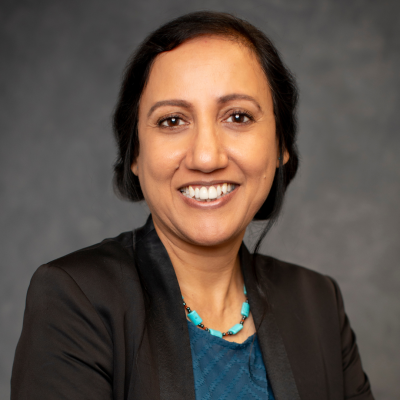
Roli Dwivedi, MD, FAAFP
Dr. Roli Dwivedi is an Associate Professor and the Mac Baird Vice Chair in Community Engagement and Advocacy within the Department of Family Medicine & Community Health at the University of Minnesota Medical School. She also serves as the Chief Executive Officer and Chief Clinical Officer at the Community-University Health Care Center (CUHCC). Additionally, Dr. Dwivedi is the current President of the Minnesota Academy of Family Physicians (MAFP) and a board member of the Minnesota Association of Community Health Centers (MNACHC).
Dr. Dwivedi is deeply committed to serving underserved populations, advancing global health, and providing culturally-sensitive care. Her work focuses on reducing health disparities and mentoring the next generation of medical students and residents.
Faculty Page

William Elliott, Ph.D.
Dr. William Elliott is a leading researcher in the fields of college savings accounts, college debt, and wealth inequality. He’s published in journals such as Economics and Education Review, Journal of Poverty, and his most recent book is, “Making Education Work for the Poor: The Potential of Children’s Savings Accounts."
Dr. Elliott’s research adds fuel to debates about how to imagine ways of financing college other than by student debt. He asks if college education can truly be the great equalizer it is meant to be when wealth inequality remains the defining feature of America. The seemingly naive premise behind his research is there are better, more effective, and more just ways of financing college and delivering on the promise of the American dream. He suggests people must just be shown once again that more is possible.
Faculty Page
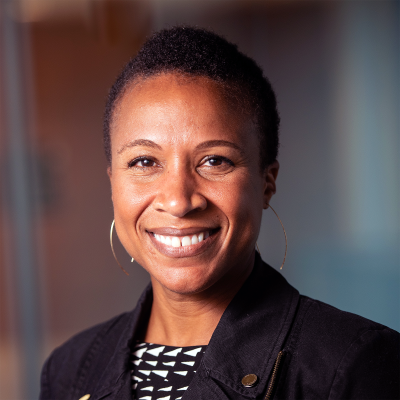
Gail M. Ferguson, Ph.D.
Dr. Gail M. Ferguson is a professor in the Institute of Child Development at the University of Minnesota where she directs the Culture and Family Life Lab. Dr. Ferguson’s transnational and translational research integrates developmental, cross-cultural, and clinical psychology to study modern cultural socialization and transmission (e.g., remote acculturation, remote enculturation, Whiteness socialization) in families from varying racial, cultural, and national backgrounds. Her work aims to identify and target risk and protective factors in prevention programs that bolster the resilience of children and youth in globalizing settings while equipping parents to meet modern parenting demands.
Dr. Ferguson heads a food-focused media literacy intervention for acculturating Black youth globally (JUS Media?) to address the disproportionate targeting of junk food advertising to Black and BIPOC youth. Her team also translated their award-winning Whiteness Pandemic research on racial socialization in White Minneapolis families around Mr. George Floyd’s murder into a new virtual dual-component antiracist parenting intervention (CARPE DIEM). She serves as a Consulting Editor of Child Development, sits on the SRA Board of Directors, and is a Fellow of APA Division 7 (Developmental) and the International Academy of Intercultural Research.
Faculty Page
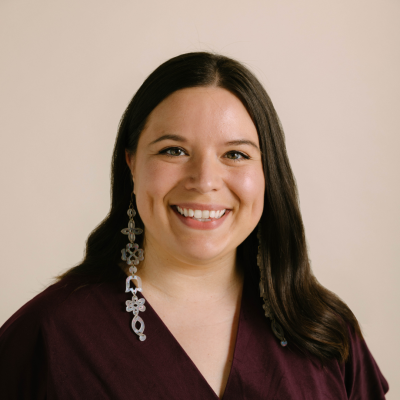
Jill Fish, Ph.D.
Dr. Jill Fish, LP, is the owner of Fish Psychotherapy & Consulting and an assistant professor of psychology at Macalester College. She is from the Tuscarora Nation of the Haudenosaunee Confederacy of Western NY. Jill earned her Ph.D. in counseling psychology from the University of Minnesota in 2020 and completed a postdoctoral fellowship in health services research at the Minneapolis VAHCS in 2023.
Dr. Fish’s interdisciplinary research focuses on promoting Native American and Indigenous peoples’ well-being across the lifespan. She is broadly interested in how Native peoples use their histories and cultures to overcome oppression and to support their healthy functioning. She considers herself a public scholar; much of her research uses diverse approaches to co-creating and sharing knowledge with Indigenous communities, including her award-winning digital storytelling project, OrigiNatives.
Philip Fisher, Ph.D.
Dr. Phillip Fisher is the Excellence in Learning Endowed Professor in the Graduate School of Education at Stanford University and Director of the Stanford Center on Early Childhood.
His research focuses on (1) developmental neuroscience of early life adversity, (2) supporting community-based early childhood systems to ensure that all children thrive from the start, and on (3) developing tools and identifying pathways to accelerate the pace of early childhood research. Dr. Fisher is the recipient of the 2012 Society for Prevention Research Translational Science Award, and a 2019 Fellow of the American Psychological Society.
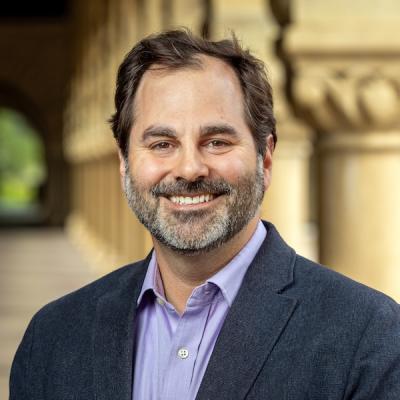
Michael Frank, Ph.D.
Dr. Michael C. Frank is Benjamin Scott Crocker Professor of Human Biology in the Department of Psychology at Stanford University and Director of the Symbolic Systems Program. He received his PhD from MIT in Brain and Cognitive Sciences in 2010. He studies children's language learning and development, with a focus on the use of large-scale datasets to understand the variability and consistency of learning across cultures.
Dr. Frank is a founder of the ManyBabies Consortium, and has led open-data projects including Wordbank and the ongoing LEVANTE project. He has received awards including the Troland Award from the National Academy of Sciences and the FABBS Early Career Impact award. He served as President of the Cognitive Science Society, has edited for journals including Cognition and Child Development, and is current co-Editor in Chief of the Open Encyclopedia of Cognitive Science.

Cynthia García Coll, Ph.D.
Dr. Cynthia García Coll is the Charles Pitts Robinson and John Palmer Barstow Professor Emerita, at Brown University. Since 2011, she has been Adjunct Professor-Pediatrics, University of Puerto Rico (UPR) School of Medicine. Her research focuses on the interplay of sociocultural and biological influences on child development, in populations that live in at-risk conditions and/or are minoritized. She received her BA-UPR, her MA-University of Florida and her PhD-Harvard University. Dr. García Coll was senior editor of Child Development and Developmental Psychology.
She is a fellow of APA and APS and has received awards from Tufts and Brown University, the SDBP, SRCD, the Latino Caucus (SRCD), Progreso Latino and a Doctorate in Humane Letters, Honoris Causa, Erikson Institute. She has been on the governing boards of the United Way of Rhode Island, the Rhode Island Community Foundation, SRCD, SSHD and FCD. She was a member and Chair of the Young Scholars Program, WT Grant Foundation, for eleven years. Her research was funded by NIH, the McArthur Foundation, the WT Grant Foundation, and the Spencer Foundation. She has three adult children, three grandchildren and is currently an active yoga and mindfulness practitioner and teacher.
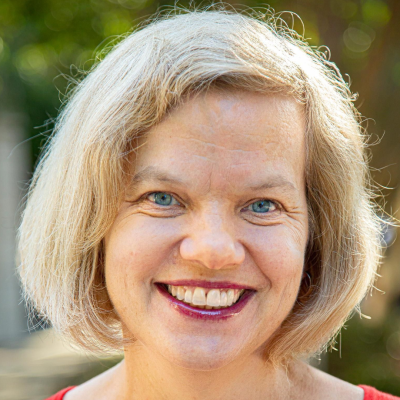
Christina Gibson-Davis, Ph.D.
Dr. Christina Gibson-Davis is a professor of Public Policy and Sociology at Duke University and an affiliate of the Center for Child and Family Policy and the Duke University Population Research Institute. She is currently serving as the Associate Dean of Academic Affairs at the Sanford School of Public Policy. She has been the PI or co-PI on several foundation, EPA, NSF, or NICHD-funded grants. Her work has been published in top demography, psychology, and medical journals.
A family demographer, Dr. Gibson-Davis studies the health and well-being of low-income families and their children by concentrating on factors that determine familial and child flourishing, including economic and policy inputs. Her most recent work has concentrated on the contours and consequences of wealth among children. Her studies indicate that high levels of net worth poverty for children and their families translate into increased risk of compromised well-being for children and their parents.
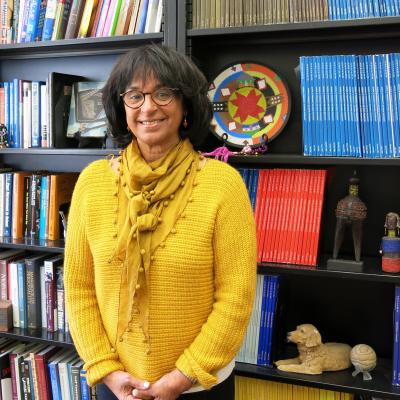
Sandra Graham, Ph.D.
Dr. Sandra Graham is a Distinguished Professor in the Human Development and Psychology division in the Department of Education at UCLA and the University of California Presidential Chair in Education and Diversity. She received her BA from Barnard College, an MA in History from Columbia University, and her PhD in Education from UCLA. Graham is a developmental social psychologist. Her major research interests include the study of academic motivation and social development in children of color, particularly in school contexts that vary in racial/ethnic diversity. She focuses on how school context variables such as racial/ethnic diversity contribute to the development of cross-ethnic friendships, positive intergroup attitudes, multiple social identities, coping with peer victimization, and the reduction of achievement disparities between different racial/ethnic groups.
Dr. Graham is also a Principal Investigator on grants from the National Science Foundation and the National Institute of Child Health and Human Development (NICHD). Among her awards, she is a 2011 recipient of the Distinguished Scientific Contributions to Child Development Award from the Society for Research on Child Development, the 2014 E. L. Thorndike Career Award for Distinguished Contributions to Educational Psychology, Division 15 of the American Psychological Association, the 2023 James Jackson Lifetime Achievement Award for Transformative Scholarship, Association for Psychological Science (APS) and the 2023 AERA Division C Sylvia Scribner Award for outstanding contributions to the field of learning and instruction. In 2015 she was elected to the National Academy of Education. She is a Fellow in the American Psychological Association, Association of Psychological Science, and American Educational Research Association.
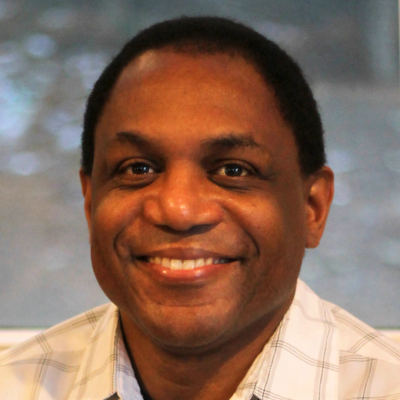
Andrew Grant-Thomas, Ph.D.
Dr. Andrew Grant-Thomas (he/him), as Co-founder and Co-director of EmbraceRace, helps lead its efforts to support parents, educators and other caregivers to raise children who are thoughtful, informed, and brave about race so that multiracial democracy in the US can thrive. He is a long-time racial justice researcher and advocate. In stops that include the Harvard Civil Rights Project, the Kirwan Institute for the Study of Race & Ethnicity, and the Proteus Fund, Dr. Grant-Thomas has worked on issues from PK-12 segregation to redistricting, immigration to the criminal legal system, and implicit bias to structural racism. He champions efforts that can make a meaningful difference in the lives of vulnerable people and communities—not 100 years from now, but in his lifetime and the lifetimes of his two teen children. Dr. Grant-Thomas earned his BA (literature) from Yale University, and his MA (international relations) and Ph.D. (political science) from The University of Chicago.
Professional Website
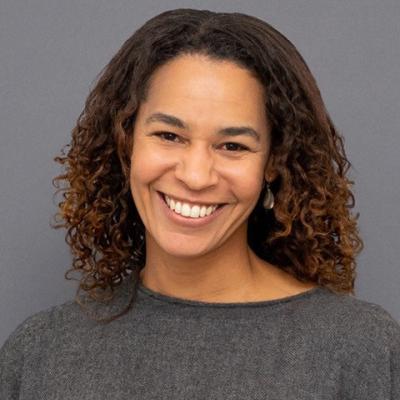
Catherine Hartley, Ph.D.
Dr. Catherine A. Hartley is an Associate Professor of Psychology and Neural Science at New York University. She received her B.S. in Symbolic Systems from Stanford University and her PhD in Psychology from NYU. Her research focuses on characterizing how dynamic changes in brain circuits from childhood to adulthood influence the learning, memory, and decision-making processes that support goal-directed behavior.
Dr. Hartley’s research has been supported by the National Science Foundation, the National Institutes of Mental Health and Drug Abuse, and has been recognized with awards from the National Academy of Sciences, the Association for Psychological Science, the Society for Neuroeconomics, the Cognitive Neuroscience Society, and the Social Affective Neuroscience Society. A central goal of her research is to understand the adaptive benefits of how individuals learn and make decisions at different developmental stages, as well as how specific learning and decision-making biases contribute to psychological vulnerability or resilience.
Professional Page: The Hartley Lab | Follow Dr. Catherine Hartley on X (1) | Follow Dr. Catherine Hartley on X (2)
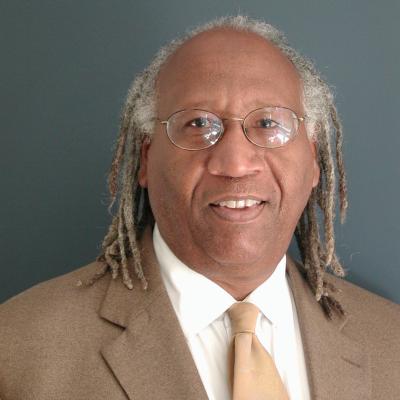
James M. Jones
James M. Jones is Trustees Distinguished Professor Emeritus of Psychological & Brain Sciences. He served as Executive Director for Public Interest and Director of the Minority Fellowship Program at the American Psychological Association from 1977-2005. He earned a BA from Oberlin College and his Ph.D. in social Psychology from Yale University and was a faculty member of the Psychology Department at Harvard University.
He published Prejudice and Racism in 1972 and a second edition in 1997, and with Jack Dovidio and Deborah Vietze, The Psychology of Diversity in 2014, 2e 2025.
Dr. Jones is past-President of the Society of Experimental Social Psychology and the Society for the Psychological Study of Social Issues. His numerous awards include the James S. Jackson Lifetime Achievement award for Transformative Scholarship from the Association for Psychological Science. Dr. Jones was elected to membership in the National Academy of Sciences in 2023.
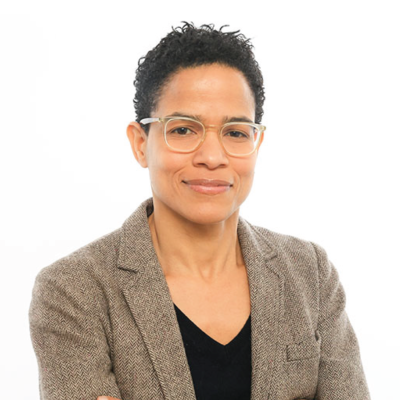
Nikki Jones, Ph.D.
Dr. Nikki Jones is Professor of African American Studies at UC-Berkeley. Her work focuses on the experiences of Black women, men, and youth with the criminal legal system, policing, and violence. Dr. Jones is the author of two books: Between Good and Ghetto: African American Girls and Inner-City Violence (2010) and The Chosen Ones: Black Men and the Politics of Redemption (2018), which received the Michael J. Hindelang Outstanding Book Award from the American Society of Criminology in 2020. Her current research includes the analysis of interviews with police officers and video recordings of routine police encounters with the public, with a focus on encounters that involve the police and Black youth in high-surveillance neighborhoods. These records are housed in the Justice Interaction Lab in the Department of African American Studies at UC-Berkeley.
Dr. Jones has received awards for her research and writing from the William T. Grant Foundation, including the Award for Early Career Scholars (2007-12), and the New Scholar Award from the American Society of Criminology’s Division on Women and Crime (2010) and Division on People of Color and Crime (2009. She received the W.E.B. Du Bois Award from the Western Society of Criminology in 2020 and the Coramae Richey Mann Award for outstanding contributions to scholarship on race, crime, and justice from the American Society of Criminology in 2018. Her expertise has been featured in print, radio, and television news media, including KCBS Radio, Axios.com, History.com, and BBC World Newshour, among others. She earned her Ph.D. in Sociology and Criminology from the University of Pennsylvania.

Frank Kessel, Ph.D.
Dr. Frank Kessel is Professor Emeritus at the University of New Mexico (UNM), where he served in the College of Education and as a Senior Fellow in the Robert Wood Johnson Foundation Center for Health Policy. Prior to joining UNM Kessel was a Program Director for the Culture, Health and Human Development Program at the Social Science Research Council (SSRC) in New York.
Also responsible for SSRC initiatives at the intersection of the social, psychological and bio-medical sciences, Dr. Kessel has contributed to numerous national/international conferences and publications in the area of Inter/Trans-Disciplinarity (ID/TD); and has been involved in international early education initiatives. His commitment to facilitating conversations across conventional disciplinary and sub-disciplinary lines is reflected in the many conferences and symposia he has organized and the range of volumes he has edited. An elected Fellow of APA, APS and ISSBD, Kessel received his Ph.D. from the University of Minnesota and M.A. from the University of Cape Town.
Melanie Killen, Ph.D.
Dr. Melanie Killen is Distinguished University Professor in the Department of Human Development and Quantitative Methodology and Director of the Social and Moral Development Lab at the University of Maryland. She is author of Children and Social Exclusion: Morality, Prejudice, and Group Identity with Adam Rutland, and editor of the Handbook of Moral Development with Judith Smetana. Commissioned by Anderson Cooper, Dr. Killen’s team conducted a study on children’s racial bias, which aired on CNN and won an Emmy Award.
Dr. Killen is an elected member of the National Academy of Education, Fellow of the Association for Psychological Science, the American Psychological Association, and the Society for the Psychological Study of Social Issues. Dr. Killen studies how children and adolescents weigh fairness and group identity concerns in the context of social inequalities and stereotypic expectations. Her lab created Developing Inclusive Youth, a school-based program designed to promote inclusive classroom environments.

Rebecca Knickmeyer, Ph.D.
Dr. Rebecca Knickmeyer received her PhD in Experimental Psychology from the University of Cambridge (U.K.) and completed her postdoctoral training at the University of North Carolina at Chapel Hill. She is currently a Professor in the Department of Pediatrics and Human Development at Michigan State University and Associate Director of MSU's Institute for Quantitative Health Sciences and Engineering.
The goal of Dr. Knickmeyer's lab is to identify genes and molecular pathways associated with altered brain development in infancy and early childhood through the integration of pediatric neuroimaging with cutting-edge techniques in genomics, metagenomics, and analytical chemistry. She has a particular interest in mechanisms underlying sexual differentiation of the brain and the microbiome-gut-brain axis. She has authored over 80 scientific publications, is founder and director of ORIGIN (the Organization for Imaging Genomics in Infancy), a working group of the ENIGMA Consortium, and serves on the editorial board of Molecular Autism.
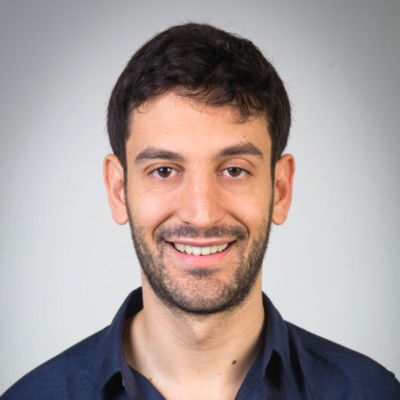
Brenden Lake, Ph.D.
Dr. Brenden M. Lake is an Associate Professor of Psychology and Data Science at New York University. He received his M.S. and B.S. in Symbolic Systems from Stanford University in 2009, and his Ph.D. in Cognitive Science from MIT in 2014. He was a postdoctoral Data Science Fellow at NYU from 2014-2017.
Dr. Lake is a recipient of the Robert J. Glushko Prize for Outstanding Doctoral Dissertation in Cognitive Science, he is a MIT Technology Review Innovator Under 35, and his research was selected by Scientific American as one of the 10 most important advances of 2016. Brenden's research focuses on computational problems that are easier for people than they are for machines, such as learning new concepts, creating new concepts, learning-to-learn, and asking questions.

Jennifer E. Lansford, Ph.D.
Dr. Jennifer Lansford is the S. Malcolm Gillis Distinguished Research Professor of Public Policy and Director of the Center for Child and Family Policy at Duke University. Her research focuses on how culture and family-level factors interact to influence human development, especially the etiology of health-compromising and risky behaviors from childhood to adulthood. Dr. Lansford leads the Parenting Across Cultures Project, a longitudinal study of children and parents from nine countries.
She has consulted for UNICEF on the evaluation of parenting programs in several countries and on the development of a set of international standards for parenting programs. She is a Fellow of the American Psychological Association, the Association for Psychological Science, and the International Society for the Study of Behavioral Development and serves on the Steering Committee of Developmental Scientists for Climate Action. She is currently President‐Elect of the Society for Research in Child Development.

Allyson Mackey, Ph.D.
Dr. Allyson Mackey is an Associate Professor of Psychology at the University of Pennsylvania. Dr. Mackey holds a Ph.D. in Neuroscience from the University of California, Berkeley, and a B.S. in Biological Sciences from Stanford University. She completed her postdoctoral training at the Massachusetts Institute of Technology.
Dr. Mackey is the founder and director of the Changing Brain Lab. She studies individual differences in brain plasticity and development with an eye towards personalizing the type and timing of educational interventions. Her research is supported by the National Science Foundation, the National Institute on Drug Abuse, CIFAR, the Jacobs Foundation, and the LEGO Foundation. Dr. Mackey serves on the Scientific Advisory Council of the National Center on the Developing Adolescent. She is the recipient of the Rising Star award from the Association of Psychological Sciences, and the Early Career Award from the International Mind Brain and Education Society.
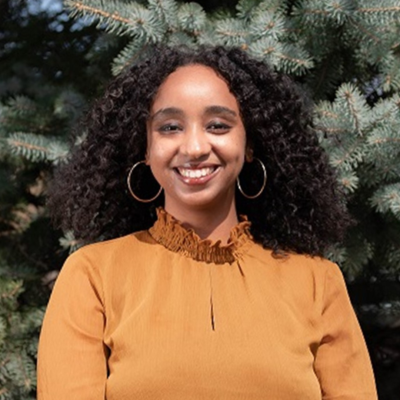
Tiyobista Maereg
Tiyobista Maereg is a sixth-year Ph.D. candidate in Developmental Psychology minoring in Women’s, Gender, and Sexuality Studies at Pennsylvania State University. She received her B.A. degree in Psychology & Political Science as a McNair Scholar from the University of North Carolina at Chapel Hill. Tiyobista’s primary research interest is exploring the role place-based and social contexts play in the relationship between ethnic-racial identity development and academic outcomes for Black youth.
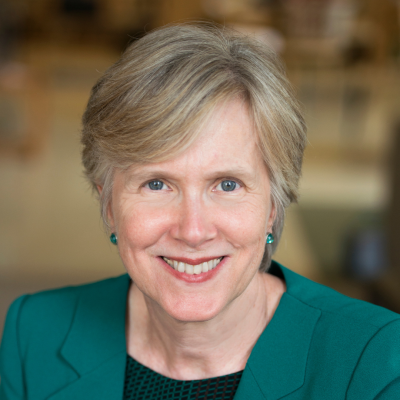
Ann S. Masten, Ph.D.
Dr. Ann S. Masten is a Regents Professor in the Institute of Child Development at the University of Minnesota (UMN). She is an alum of Smith College (BA), UMN (PhD, clinical psychology), and UCLA (clinical internship). She studies resilience in human development, especially in the context of homelessness, poverty, disaster, war, and migration. She is a past President of the Society for Research in Child Development (2011-2013) and Division 7 of the American Psychological Association (APA). Her honors include the 2024 Grawemeyer Prize in Psychology, Smith College Medal, Bronfenbrenner Award for Lifetime Contributions to Developmental Psychology and Mentor Award (APA) and election in 2021 to the American Academy of Arts and Sciences. Dr. Masten has published more than 300 scholarly works and offers a free MOOC (Mass Open Online Course) on “Resilience in Children Exposed to Trauma, Disaster and War” taken by thousands of participants from more than 180 countries.

Lauren Mims, Ph.D.
Dr. Lauren Christine Mims is an assistant professor of Developmental Psychology at NYU Steinhardt. Dr. Mims earned her doctorate in Educational Psychology: Applied Developmental Science at the University of Virginia School of Education. Dr. Mims was formerly Assistant Director of the White House Initiative on Educational Excellence for African Americans during the Obama Administration.
Dr. Mims’ current research focuses on Black children and adolescents’ (extra)ordinary learning and development amidst the normativity of racial discrimination in their everyday life experiences. Specifically, she explores how Black children’s interactions within their families, peer groups, communities, and schools may buffer the deleterious impacts of experiences of racism and discrimination by providing agentic, adaptive coping strategies that, in turn, lead to positive development. The ultimate goal of her research is to “freedom dream” (Kelley, 2002) with Black children and their families, and then use that brilliance to guide the development of new research, policies, practices, and narratives.
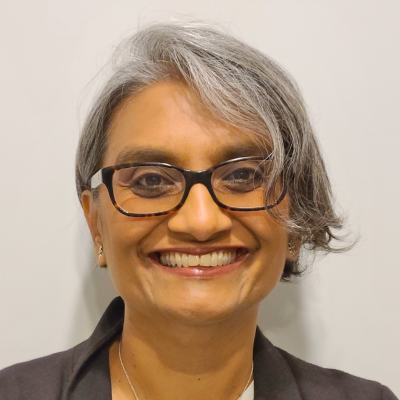
Rashmita S. Mistry, Ph.D.
Dr. Rashmita S. Mistry is a Professor of Education at the University of California, Los Angeles. Her research examines the developmental consequences of family socioeconomic resources and disadvantage; children’s and adolescents’ social identity development (i.e., social class, race/ethnicity) and their perceptions, reasoning, and experiences of social inequalities. She served on the Governing Council for SRCD, co-Chaired SRCD’s 2023 Biennial Meeting, and currently serves as a Special Associate Editor for Child Development.
Dr. Mistry was a member of the American Psychological Association’s (APA) 2019 Presidential Deep Poverty Initiative Working Group and currently serves on the Foundation for Child Development’s (FCD) Advisory Committee for the Young Scholars Program and the Board of Directors for MDRC. She is a Fellow of the Association of Psychological Science.
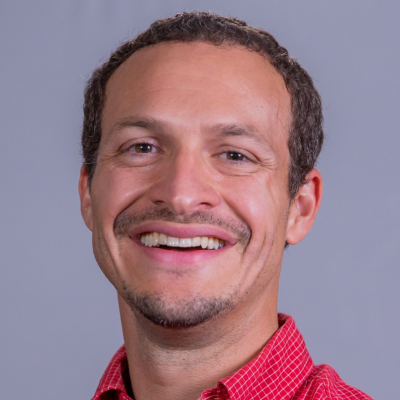
Santiago Morales, Ph.D.
Dr. Santiago Morales is an assistant professor of psychology and pediatrics at the University of Southern California. Dr. Morales completed his Ph.D. and M.S. in Developmental Psychology at The Pennsylvania State University and a postdoc at the University of Maryland. His research examines individual differences in the development of emotion and emotion regulation.
Dr. Morales’ research focuses on the impact that these early individual differences have on socioemotional development, especially with regard to the development of internalizing and externalizing psychopathology. He is also interested in identifying factors, internal or external to the child, that help us determine which children at early risk go on to develop socioemotional problems. His work integrates multiple methods, including behavioral observations, computer-based tasks (eye tracking), and neuroscience measures (EEG and fMRI). Dr. Morales’ research has been recognized by national and international academic societies, awarding him four early career contribution awards, including from APS, APA, SRCD, and the International Society of Developmental Psychobiology.
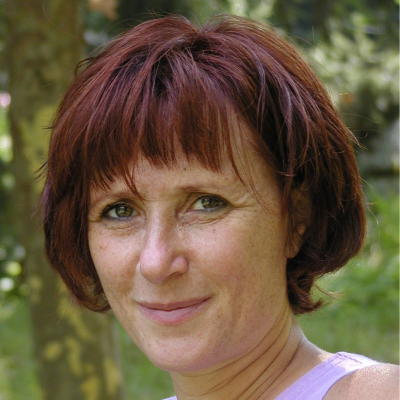
Gilda Morelli, Ph.D.
Dr. Gilda Morelli researches the ecocultural correlates of children’s care and social development and much of her work involves the study of young children in forager and in subsistence farming communities of the Democratic Republic of Congo where she has lived and worked for over 20 years. She co-founded the Ituri Peoples Project Fund (501c3) to support the education and health of families living in the Ituri Province of DR Congo; she was an SRCD Policy Fellow in, and later consultant for, the Department of Health and Human Services (DHHS) on children’s care in formal and informal settings.
Dr. Morelli is involved with efforts to strengthen the evidentiary basis of culturally relevant early childhood care and education interventions. As part of this effort, she chaired and co-organized an SRCD sponsored workshop of researchers, practitioners, and NGO representatives to promote productive conversation on children’s care, learning and development.
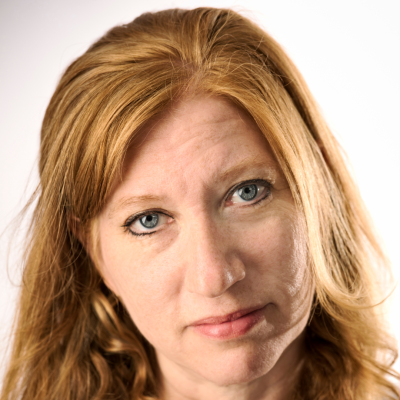
Pamela Morris-Perez, Ph.D.
Dr. Pamela Morris-Perez is a Professor of Applied Psychology at the NYU Steinhardt School of Culture, Education, and Human Development and an elected member of the National Academy of Education. With over $75 million in funding, her research intersects developmental psychology, suicidology, education, and policy. A former William T. Grant scholar, Dr. Morris-Perez served as lead editor of the Journal of Research on Educational Effectiveness, a member of the National Academy of Science’s Board on Children, Youth, and Families, and currently serves on the NYS Suicide Prevention Task Force. Her early childhood work includes an IES-funded partnership with NYC and an NIH-funded trial of a tiered parenting intervention.
Dr. Morris-Perez’s newest research, borne from the loss of her daughter Frankie, addresses adolescent suicide from a developmentally-informed, population-health perspective as part a center she founded: ARCADIA for Suicide Prevention. She earned a B.A. from Columbia University and a Ph.D. in Developmental Psychology from Cornell University.
Faculty Page | Follow Pamela Morris-Perez on X | Follow Pamela Morris-Perez on Instagram

Yuko Munakata, Ph.D.
Dr. Yuko Munakata is a Professor of Psychology and director of the Cognition in Context Lab in the Center for Mind and Brain at the University of California, Davis. For over 25 years, Dr. Munakata has studied child development using behavioral studies, computational modeling, and neuroimaging techniques. Her research focuses on how children adapt in response to their individual experiences to develop unique profiles of executive functioning, and why these variations matter for life outcomes.
Her work has been featured in The Atlantic, Parents Magazine, and even The Onion. Her TEDx talk on the science behind how parents affect child development has reached millions of viewers. Dr. Munakata received a B.A. in Psychology and B.S. in Symbolic Systems from Stanford University, and a Ph.D. in Psychology from Carnegie Mellon University. After conducting postdoctoral research at the Massachusetts Institute of Technology, she was a PI at the University of Denver and then the University of Colorado Boulder before moving to Davis.
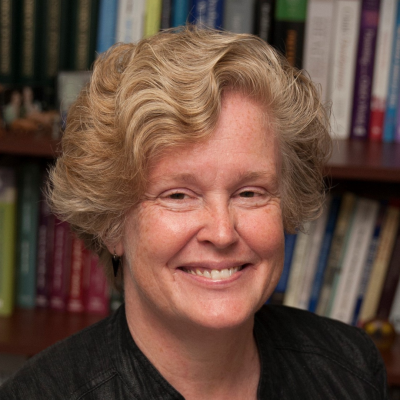
Margaret O’Brien Caughy, Sc.D.
Dr. Margaret O’Brien Caughy is the Georgia Athletic Association Professor in Family Health Disparities in the Department of Human Development and Family Science at the University of Georgia. Dr. Caughy’s research combines the unique perspectives of developmental science, epidemiology, and public health in studying the contexts of risk and resilience affecting young children. She is particularly interested in how familial processes such as supportive parenting and ethnic-racial socialization support healthy development among children experiencing contextual stressors such as economic instability, racism and discrimination, and sociopolitical stress.
Dr. Caughy received a Bachelor of Science degree in Psychology from Texas A&M University, a Masters of Education degree in Human Development from the University of Maryland, and a Doctor of Science degree in Maternal and Child Health from the Johns Hopkins School of Public Health.
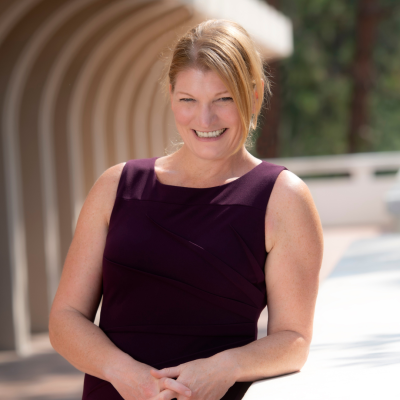
Candice Odgers, Ph.D.
Dr. Candice Odgers is Associate Dean for Research and Professor of Psychological Science and Informatics at the University of California, Irvine. She co-directs the Child & Brain Development Program at the Canadian Institute for Advanced Research and CERES, an international network evaluating the design and impact of digital technologies for children and adolescents. Her team has been capturing the daily lives and mental health of adolescents using mobile phones and sensors for more than a decade. Odgers is the author of over 100 scientific publications with findings disseminated widely outside of academia.

Cynthia Osborne, Ph.D.
Dr. Cynthia Osborne is a Professor of Early Childhood Education and Policy in the Department of Leadership, Policy, and Organizations at Vanderbilt University’s Peabody College. She is the founder and executive director of the national Prenatal-to-3 Policy Impact Center, an academic research center that translates the science of the developing child into state level policies with the strongest evidence base of effectiveness.
Dr. Osborne is a 2023 Aspen Institute Ascend Fellow and has also co-authored reports for the National Academies of Sciences, Engineering, and Medicine Committee on Building an Agenda to Reduce the Number of Children in Poverty by Half in 10 Years and Exploring the Opportunity Gap for Young Children from Birth to Age Eight. Dr. Osborne holds a Ph.D. in demography and public affairs from Princeton University, a Master in Public Policy degree from Harvard University’s Kennedy School of Government, and a Master of Arts in education from Claremont Graduate University.
Professional Website | Follow Cynthia Osborne on X (1) | Follow Cynthia Osborne on X (2)
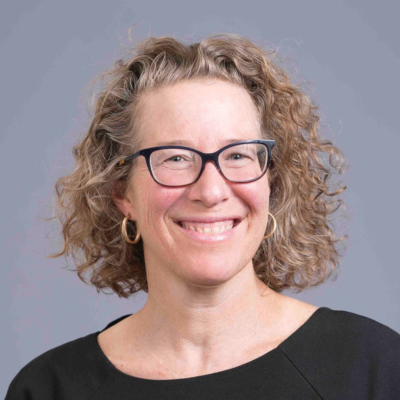
Emily J. Ozer, Ph.D.
Dr. Emily J. Ozer is a clinical and community psychologist, Professor at UC-Berkeley School of Public Health, Director of Institute of Human Development, and founding co-Director of Innovations for Youth (I4Y). Her multi-method research has focused on adolescent development and mental health; psychological resilience; school-based interventions; and youth participatory action research (YPAR), an equity-focused approach in which youth generate research evidence to improve their schools and communities.
Funded by an Institutional Challenge Grant, Dr. Ozer leads an initiative to strengthen policies and culture to support community-engaged research at Berkeley and a research-practice partnership (RPP) with SF Unified to promote student wellbeing and integrate YPAR in school improvement practices. She recently concluded a 6-district study in CA, Colorado, NJ, and Ohio to study and strengthen the use of research evidence from YPAR in K-12 schools, and led a national scan on innovations in academia to strengthen the incentives for public impact research.
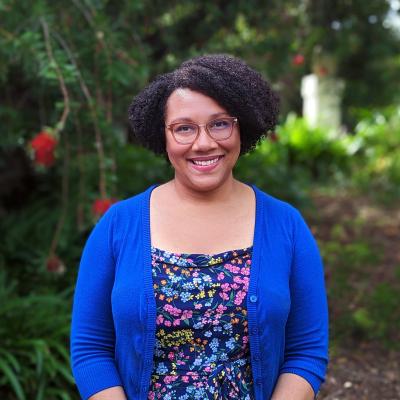
Sylvia Perry, Ph.D.
Dr. Sylvia Perry is Associate Professor of Psychology and Institute for Policy Research Fellow at Northwestern University. She studies the development of racial bias awareness and its impact on prejudice, intergroup contact, and health disparities. Her work addresses how norms around racism discussions contribute to anti-racism and how White parental racial socialization shapes children’s attitudes.
Dr. Perry has published in leading journals, including Annual Review of Psychology and Developmental Psychology. She has received numerous awards, including the Society for Personality and Social Psychology’s SAGE Young Scholar Award and UIUC’s Ann L. Brown Award for Excellence in Developmental Research. She serves on multiple editorial boards and was Associate Editor of Psychological Science from 2022-2024. She is a fellow of the Society for Personality and Social Psychology, the Society for Experimental Social Psychology, the Association for Psychological Science, and the Society for the Psychological Study of Social Issues.

Mitch Prinstein, Ph.D., ABPP
Dr. Mitch Prinstein is the Chief Science Officer of the American Psychological Association, and at the at the University of North Carolina at Chapel Hill he serves as the John Van Seters Distinguished Professor of Psychology and Neuroscience, and the Co-Director of the Winston National Center on Technology Use, Brain, and Psychological Development.
For over 25 years, and with continuous funding from the National Institutes of Health, Dr. Prinstein’s research has examined interpersonal models of internalizing symptoms and health risk behaviors among adolescents, with a specific focus on the unique role of off- and on-line peer relationships in the developmental psychopathology of depression and self-injury. He is a board-certified clinical psychologist and has published over 200 scientific manuscripts and 12 books.
At APA, Dr. Prinstein is responsible for leading the association’s science agenda and advocating for the application of psychological research and knowledge in settings including academia, government, industry, and the law. Prior to APA, he served as the Director of Clinical Psychology at UNC and Yale University, the Director of Graduate Studies in the Department of Psychology and Neuroscience, and the Assistant Dean for Honors Carolina.

Miao Qian, Ph.D.
Dr. Miao Qian is an Assistant Professor of Psychology at the University of Detroit Mercy, where she leads the Child Social Cognitive Development Lab. She earned her Ph.D. in Developmental Psychology and Education from the University of Toronto and completed postdoctoral training in the Inequality in America Initiative at Harvard University. Her research focuses on the origins of implicit social biases, particularly related to race and gender, and how these biases can be reduced through innovative interventions, such as cooperative games and synchronous movements. Dr. Qian is passionate about developing child-friendly tools to measure implicit biases and designing interventions to foster inclusivity from a young age.

Nirmala Rao, Ph.D.
Dr. Nirmala Rao is a Serena H C Yang Professor in Early Childhood Development and Education, Chair Professor of Child Development and Education, Faculty of Education, The University of Hong Kong. Her research focuses on early childhood development and education in Asian cultural contexts. She has led studies involving direct assessment of children aged 3 to 6 years with nationally representative samples in many countries in East Asia and the Pacific.
Dr. Rao has received awards for both research and teaching and has had significant administrative leadership roles at The University of Hong Kong. Internationally, she regularly provides expertise and consultancy for UNICEF, UNESCO, the World Bank, the OECD, and the World Health Organization. Dr. Rao serves on the Editorial Board for premier scholarly journals, was an Associate Editor of Child Development (2013 – 2022), and was co-editor of the special issue on the impact of COVID-19 on child development.

Leoandra Onnie Rogers, Ph.D.
Dr. Leoandra Onnie Rogers is an Associate Professor in the Department of Comparative Human Development at the University of Chicago, the Director of the Development of Identities in Cultural Environments (D.I.C.E) research lab, and President-Elect for the Society for Research on Adolescence (SRA). A developmental psychologist and identity scholar, Dr. Rogers examines the mechanisms through which macro-level structures and ideologies of privilege and oppression are both perpetuated and disrupted at the micro-level of identities and relationships. Her projects focus on how children and adolescents make sense of their intersecting racial, ethnic and gender identities in relation to oppressive ideologies and stereotypes; how identity processes shape and are shaped by sociocultural contexts and interpersonal interactions; and the ways young people resist oppression and construct counternarratives and pathways toward liberation.
Dr. Rogers was a postdoctoral fellow with the Spencer Foundation/National Academy of Education and National Science Foundation (NSF) and was named a Rising Star by the American Psychological Association. Her research has been published widely in scholarly journals, including American Psychologist, Child Development, Cultural Diversity and Ethnic Minority Psychology, Developmental Psychology, Journal of Adolescent Research, Qualitative Psychology, and more.
Dr. Rogers received her PhD in developmental psychology from New York University’s Steinhardt School of Culture, Education, and Human Development and holds a BA in psychology and educational studies from the University of California, Los Angeles (UCLA).

Barbara Rogoff, Ph.D.
Dr. Barbara Rogoff is UCSC Foundation Distinguished Professor at University of California Santa Cruz. She investigates cultural aspects of children’s learning and how communities arrange for learning, finding especially sophisticated collaboration and attention among children from Indigenous communities of the Americas. She received awards for Distinguished Lifetime Contributions (SRCD), Distinguished Contributions to Developmental Science (Piaget Society), and Outstanding Research (UCSC).
Dr. Rogoff is an elected member of the American Academy of Arts and Sciences and the National Academy of Education, and a Fellow of the AAA, APS, APA, and AERA. She has held the UC Presidential Chair and Fellowships of the Center for Advanced Study in the Behavioral Sciences, Kellogg Foundation, and the Exploratorium, and served as Editor of Human Development. Her books include Learning Together: Children and Adults in a School Community; The Cultural Nature of Human Development; and Developing Destinies: A Mayan Midwife and Town.
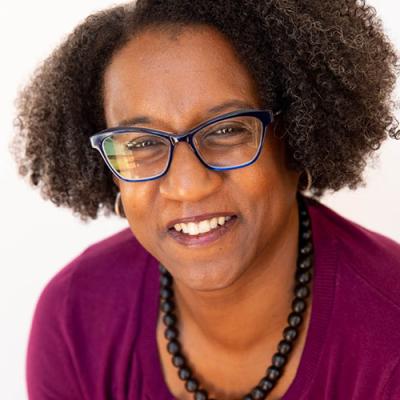
Stephanie J. Rowley, Ph.D.
Stephanie J. Rowley is the William R. Kenan Jr. Professor of Education and Dean of the School of Education and Human Development at the University of Virginia. Before returning to UVA, where she earned a PhD in Developmental Psychology, she was provost and dean at Teachers College, Columbia University. Prior to joining Teachers College, Dr. Rowley spent nearly 20 years on the faculty at the University of Michigan where she served in several key leadership positions, including Interim Chair of the Psychology Department, Chair of the Combined Program of Education and Psychology, and Associate Vice President for Research for Social Science, Arts, and Humanities. In these roles, she was successful in advancing research and teaching support for faculty, developing interdisciplinary collaboration, and strengthening graduate student life and development.
Dr. Rowley’s research takes up questions about how parents, teachers, and peers shape the rapidly developing identities and world views of young adolescents, children between the ages of 12 and 14. Her work explores how parents’ views of the world shape the ways in which they socialize their children and how that socialization relates to the children’s own views of themselves as individuals, members of social identity groups, and learners. Core to this research is the premise that race, gender, and social class are critical factors in these processes and that their interrelations change as youth move through adolescence to adulthood.
In recent years, Dr. Rowley has also begun to explore how children’s understanding of inequality evolves throughout adolescence and how that understanding shapes their views of themselves and their achievement-related motivation. Like her more general work, this research acknowledges the ways in which beliefs related to race, gender, and social class converge and diverge in important ways.
Dr. Rowley and her colleagues have published this work in journals in education, developmental psychology, and gender and cultural studies. Her research has been funded by the National Institutes of Health, the National Science Foundation, and the Spencer Foundation.
Dr. Rowley has won numerous awards for her research, teaching, service, and mentorship. Among her most valued awards have been those received for her outstanding mentoring of students. She currently lives in Charlottesville, Virginia with her husband Larry, whom she met when they were graduate students at UVA.
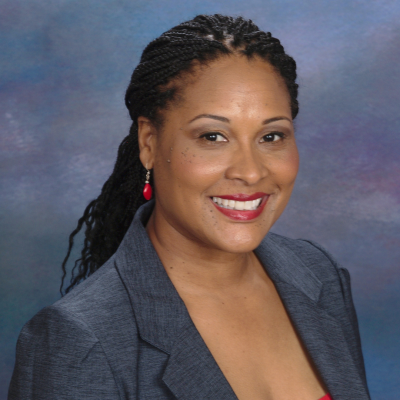
Eleanor K. Seaton, Ph.D.
Dr. Eleanor K. Seaton is a Professor in the Psychology department at the University of Illinois at Urbana-Champaign. Dr. Seaton is a developmental psychologist, and an international expert on racism-related experiences, racial identity, and mental health among Black youth. Dr. Seaton’s research documents the impact of racism on Black adolescents’ mental health using prospective cohort studies, ecological momentary assessment techniques, qualitative interviews, and analyses of nationally representative data sets.
Dr. Seaton has increasingly focused on middle childhood and early adolescence in order to understand the intersection of pubertal development, race-ethnicity, and gender among Black youth. Dr. Seaton is a former co-host of a television segment, titled Break it Down on AZ PBS where she discussed how racism impacts various facets of society. Dr. Seaton tends to journal, travel, bake desserts, shop, read, watch movies on TCM, and dance to Chicago style house music when relaxing.
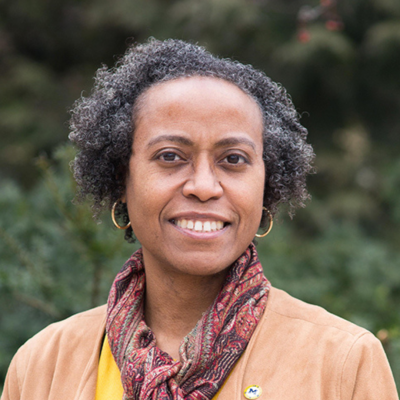
Trina Shanks, Ph.D.
Dr. Trina Shanks is currently Harold R. Johnson Collegiate Professor and Director of Community Engagement at the University of Michigan School of Social Work as well as Founding Director of the Center for Equitable Family & Community Well-Being. She has a BSBA, MSW and Ph.D. from Washington University and a Master's in Comparative Social Research from the University of Oxford as a Rhodes Scholar. Her research interests include the impact of poverty and wealth on child well-being; asset-building policy and practice across the life cycle; and community and economic development.
Dr. Shanks has been active in Detroit, conducting multiple evaluations of its summer youth employment program - Grow Detroit’s Young Talent, and convening an employment equity learning and action collaborative. Dr. Shanks is currently a AASWSW (American Academy of Social Work & Social Welfare) fellow and a national network co-lead for the Social Work Grand Challenge: Reversing Extreme Economic Inequality.
Faculty Page | Follow Dr. Tina Shanks on X
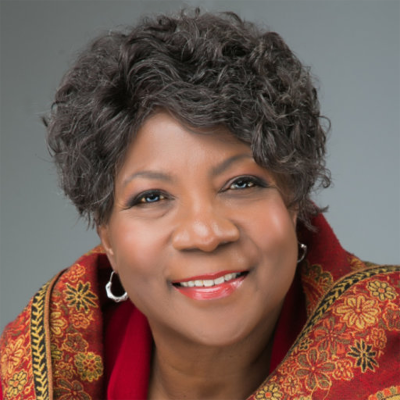
Margaret B. Spencer, Ph.D.
Dr. Margaret B. Spencer, a leading scholar of diversity, resilience and human development, has developed critical insights regarding vulnerability, risk, and resilience as normatively experienced by diverse individuals, including those considered privileged. She developed the Phenomenological Variant of Ecological Systems Theory (P-VEST), a theoretical framework that incorporates identity, cultural, and ecological perspectives that has been accepted as a unifying theory from the American Psychological Association Task Force. She has recently launched the Urban Resiliency Initiative, emphasizing educational contexts, interrogating neighborhood policing encounters, and seeking to diminish vulnerability and increased global resiliency.
Dr. Spencer has been elected to the American Academy of Arts and Sciences, the National Academy of Education, the American Psychological Association, and the American Association for the Advancement of Science. She earned her doctorate in Human Development at the University of Chicago and has been a member of the faculty since 2009.
Professional Page

Stephen Suomi, Ph.D.
Dr. Steve Suomi readily admits spending his career watching monkeys grow up, starting as Dr. Harry Harlow’s graduate student at the University of Wisconsin and, upon Harlow’s retirement, eventually directing that lab and joining the Wisconsin Psychology faculty. In 1983, he was recruited by NIH to establish a new research laboratory focusing on behavioral and biological development in monkeys, which he then directed until his retirement in 2018.
At NIH, Dr. Suomi brought together groups of distinguished interdisciplinary investigators to produce a body of research centered on longitudinal characterization of individual developmental trajectories throughout the lifespan, detailing the complex interplay among genetic and environmental factors in shaping these trajectories at multiple levels of analysis, all the while addressing basic issues of developmental continuity and change for the various behavioral, biological, and epigenetic processes under investigation. To date, this research has generated over 500 original journal articles and chapters in edited volumes authored or co-authored by Dr. Suomi.
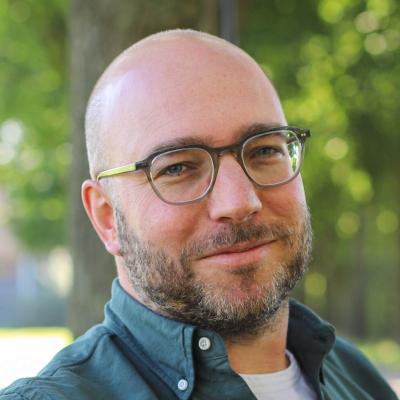
Sander Thomaes, Ph.D.
Dr. Sander Thomaes is a developmental psychologist at Utrecht University, the Netherlands. He is interested in the overarching question of how young people find their way in our rapidly changing society. His current work focuses on the climate crisis and youth development. How does climate change shape youth’s psychological development and well-being? Can we use our expertise to empower youth to cope with and help mitigate the climate crisis?
Dr. Thomaes has also written an introduction to psychology for primary school-aged children. He is a vice-dean for research and impact at Utrecht University’s Faculty of Social Sciences, where he invests in promoting science-society alliance, fair distribution of research funding, and healthy workplace culture.

Brendesha Tynes, Ph.D.
Dr. Brendesha Tynes is a developmental and educational psychologist whose transdisciplinary research focuses on critical digital literacy, the design of digital mental health interventions that empower young people, and the impact of online race-related experiences on academic, mental health, and behavioral outcomes. She has been awarded over $8 million in grants for her research, including from the National Institutes of Health, the National Science Foundation, and the Spencer Foundation.
An article highlighting Dr. Tynes’ foundational contributions to the field was published in the American Psychologist in 2023. She is the recipient of numerous research awards, including the American Educational Research Association (AERA) Early Career Award, the Spencer Foundation Midcareer Award, and an American Psychological Association (APA) Presidential Citation. She is also an AERA and APA Fellow and a recipient of the National Institutes of Health Director’s Transformative Research Award in 2023, which is given to exceptionally creative and innovative scientists.
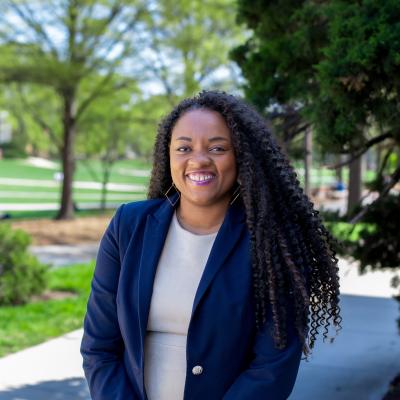
Fanita Tyrell, Ph.D.
Dr. Fanita Tyrell is an Assistant Professor in the Department of Psychology and a Faculty Affiliate of the Department of African American and Africana Studies at the University of Maryland at College Park. She is also the Director of the Resilient Adaptation across Culture and Context (RACC) Lab. Her research program focuses on elucidating processes of risk and resilience among adversity-exposed, ethnic-racial minority, and immigrant populations with a strong interest in understanding how cultural identities and experiences strengthen pathways to typical and atypical patterns of development, adaptation, and health. Her research and scholarship have been supported by the Ford Foundation, National Institute of Mental Health, Society for Research in Child Development, and American Psychological Foundation.

Suman Verma, Ph.D.
Dr. Suman Verma is a Developmental Psychologist and her research is in the areas of child work, adolescent family life, school stress, adolescent abuse, intervention studies using life skills education approaches, PYD and social policy. She was a two-time fellow at the Center for Advanced Study in the Behavioral Sciences, Stanford. As a member of a cross-cultural group, she conducted a study on Learning under Conditions of COVID-19 among Indian Adolescents in 2020.
Dr. Verma is an ISSBD Fellow, on the editorial board of Zeitschrift für Psychologie, IJBD and Psychological Science. Her book on Developmental Science and Sustainable Development Goals for Children and Youth with Anne Petersen (2018) addresses developmental issues of vulnerable youth with a focus on LMICs. She is a steering committee member of DevSCA. Currently she is an associate editor of the IJBD and one of the guest editors of a special issue on COVID-19 of JRA.
Research Gate Page: https://www.researchgate.net/profile/Suman-Verma-4

Pamela Wadende, Ph.D.
Dr. Pamela Wadende is a Developmental Psychologist and senior lecturer at Kisii University in Kenya. She teaches Developmental psychology courses to pre-service teachers and supervises graduate students at her university. Pamela’s cross-cultural work among children explores how they flourish in rapidly changing societies of LMICs specifically, Kenya, Ethiopia, Cameroon, Tanzania, Uganda, Ghana and Zambia. A guiding question for her research is; what spurs human flourishing and how can it be optimized through interventions? She believes that environmental factors heavily shape developmental outcomes; climate and its change being one such factor. Consequently, one of her current research focus is adopting a syndemic approach to engaging diet and activity related Non-Communicable Diseases including commonly occurring mental disorders. In projects supported by Templeton World Charity Foundation, she explores character development among children in Kenya, Cameroon, and Ethiopia. In her free time, she hikes and attempts half marathons.
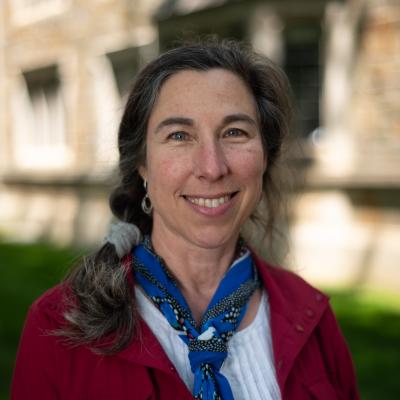
Lisa Wexler, Ph.D.
Dr. Lisa M. Wexler has worked in partnership with Alaska Native communities for decades to promote mental wellness and prevent suicide. Her strength-based, participatory research works to translate research into practical community solutions. She currently leads three research programs focused on different kinds of prevention and wellness. In health clinics, Dr. Wexler is piloting a brief universal intervention that partners with adult family members to reduce quick access to firearm lethal means (Kaiser Permanente; R61MH125757; Subrecipient of CDC R49-CE-003085); evaluating outcomes and implementation of a community mobilization approach to suicide prevention, Promoting Community Conversations About Research to End Suicide (PC CARES) (R34MH096884; R01MH112458; R01MH136768), and uses mixed methods to describe community strengths associated with youth wellness and reduced suicidal behavior in the Alaska Native Community Resilience Study (co-PI with Drs. Rasmus and Allen; U19 MH113138).
Faculty Page
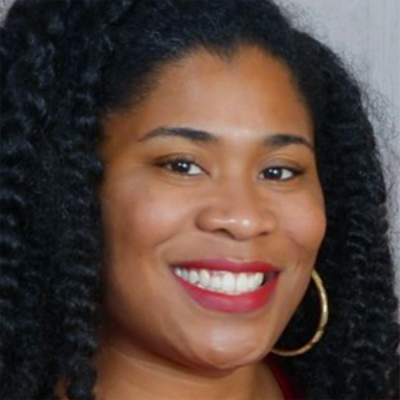
Dawn P. Witherspoon, Ph.D.
Dr. Dawn P. Witherspoon is a Professor of Psychology at the Pennsylvania State University and Director of PACT, Parents and Children Together, a community-university partnership to enhance the lives of diverse youth and families. Her research focuses on the ways in which urban and rural families and youth are influenced by the contexts in which they are embedded, particularly examining how neighborhood and race/ethnicity-related factors affect adolescents’ well-being. Dr. Witherspoon is the past chairperson of the Ethnic and Racial Issues (ERI) and Publication Committees of SRCD and a current co-chair for the Data Tracking Initiative (DTI).
Dr. Witherspoon is a past co-chair for the Society for Research on Adolescence’s (SRA) biennial meeting and member of its Board of Directors. Dr. Witherspoon engages in the publication process as an editorial board member and Associate Editor (Journal of Research on Adolescence). Her research has been supported by NIH and NSF and published in numerous outlets.

Miranda Yates, Ph.D.
Dr. Miranda Yates is a Senior Program Officer for Research-Evaluation-Learning at the Robert Wood Johnson Foundation (RWJF). With a background in developmental psychology, youth civic engagement, and community-based participatory research and evaluation, she is also a member of RWJF’s Healthy Children and Families strategic portfolio.
Prior to joining RWJF, Miranda was Assistant Executive Director of Strategy, Evaluation, and Learning at Good Shepherd Services (GSS), a youth and family development organization. With James Youniss, she co-authored Community Service and Social Responsibility in Youth and Roots of Civic Identity: International Perspectives on Community Service and Activism in Youth. Miranda has a BA in History from Georgetown University and a Ph.D. in Developmental Psychology from The Catholic University of America. She completed a postdoctoral fellowship at Brown University’s Center for the Study of Race and Ethnicity in America.

Tiffany Yip, Ph.D.
Dr. Tiffany Yip is a developmental and community psychologist and Professor at Fordham University.
She earned degrees at Cornell University and New York University. Her research on ethnic-racial identity, discrimination, sleep, and youth development appears in over 100 publications. She is a fellow of the American Psychological Association, the Association for Psychological Science, and the Academy of Behavioral Medicine and Research.
Dr. Yip was the inaugural recipient of the SRCD Early Career Achievement Award from the Asian Caucus (2011). She also received the Outstanding Contribution to Research on Asian/Asian Americans Award (2021). From the Society for Research on Adolescence, she was awarded the Excellence in Leadership Award (2022) and the Outstanding Mentor Award (2023). Her research has appeared in the New York Times, CNN, The Hill and NPR and has been funded by NIH and NSF. She currently serves on the NIH MESH (mechanisms of emotion, stress & health) study section.